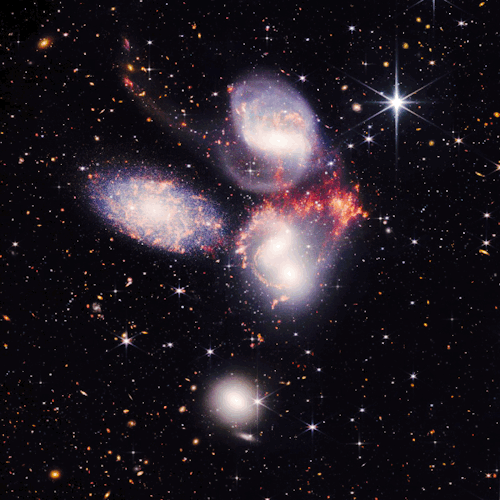
Star Trek loser, boldly going to nowhere at all 💚
39 posts
Myspocksocksrock - MySpockSocksRock - Tumblr Blog
Lost in the sauce
Two Vulcans sexting each other like:
🫱🏽
🫲🏾
🫱🏽
🫲🏾
🫱🏽
🫲🏾
🫱🏽🫲🏾
Logical.
... indeed
🫱🏽
🫲🏾
🫱🏽
🫲🏾
Farewell.
Until next time.
🖖🏽
🖖🏾
I have realized that the perfect form of media must have a delicate balance between absolutely heart wrenching pure emotional devastation and the most ridiculous nonsense you have ever seen in your whole life


Here are some of the animated gifs Santa Monica Studios have been putting out for God of War: Ragnarök







Sorry for the quality, tumblr only allows for 10MB gifs & these are quick & dirty rips straight from twitter which were already not great quality to start.
I'm assuming these are made to be used, so go right ahead & save & use however you like
Animator credits I could find:
Kratos making a heartshape & Kratos swearing about Valkyries by Dennis Pena, aka @/Boltfinger on twitter
Wolf paw slap by Grace Pan, one of the animators
Angrboda making faces by Jack Ebensteiner, aka @/AnimJack on twitter
Sweating Atreus by Kim Nguyen, aka @/KimbaWin on twitter
Thor sliding by Roberto Clemente, a senior combat animator

NASA Data Sonification: Black Hole Remix
In this sonification of Perseus. the sound waves astronomers previously identified were extracted and made audible for the first time. The sound waves were extracted outward from the center. (source)





Reindeers/renar on Flatruet in Härjedalen, Sweden (September 3, 2019).


Heart of the Carina Nebula

NGC 7635, Bubble Nebula

Heart of the Northern Cross

M17, Wings of the Swan

Cosmic clouds in Orion © ESO

Andromeda in HDR negative © Rey Hernandez

Tulip Nebula in Cygnus

NGC 6334 Starless Cat’s Paw

Pillars of Creation

𝑻𝒉𝒆 𝑳𝒊𝒕𝒕𝒍𝒆 𝑮𝒆𝒎 𝑵𝒆𝒃𝒖𝒍𝒂
This colourful bubble is a planetary nebula called NGC 6818, also known as the Little Gem Nebula. It is located in the constellation of Sagittarius (The Archer), roughly 6000 light-years away from us. The rich glow of the cloud is just over half a light-year across — humongous compared to its tiny central star — but still a little gem on a cosmic scale. When stars like the Sun enter retirement, they shed their outer layers into space to create glowing clouds of gas called planetary nebulae. This ejection of mass is uneven, and planetary nebulae can have very complex shapes. NGC 6818 shows knotty filament-like structures and distinct layers of material, with a bright and enclosed central bubble surrounded by a larger, more diffuse cloud. Scientists believe that the stellar wind from the central star propels the outflowing material, sculpting the elongated shape of NGC 6818. As this fast wind smashes through the slower-moving cloud it creates particularly bright blowouts at the bubble’s outer layers. Hubble previously imaged this nebula back in 1997 with its Wide Field Planetary Camera 2, using a mix of filters that highlighted emission from ionised oxygen and hydrogen (opo9811h). This image, while from the same camera, uses different filters to reveal a different view of the nebula. A version of the image was submitted to the Hubble’s Hidden Treasures image processing competition by contestant Judy Schmidt. less

M43: Streams of Orion : Where do the dark streams of dust in the Orion Nebula originate? This part of the Orion Molecular Cloud Complex, M43, is the often imaged but rarely mentioned neighbor of the more famous M42. M42, seen in part to the upper right, includes many bright stars from the Trapezium star cluster. M43 is itself a star forming region that displays intricately-laced streams of dark dust – although it is really composed mostly of glowing hydrogen gas. The entire Orion field is located about 1600 light years away. Opaque to visible light, the picturesque dark dust is created in the outer atmosphere of massive cool stars and expelled by strong outer winds of protons and electrons. via NASA

IC 405, Flaming Star Nebula

NASA’s James Webb Space Telescope reveals emerging stellar nurseries and individual stars in the Carina Nebula that were previously obscured
Image credit: NASA, ESA, CSA, and STScI




✨James Webb Beauty ✨
